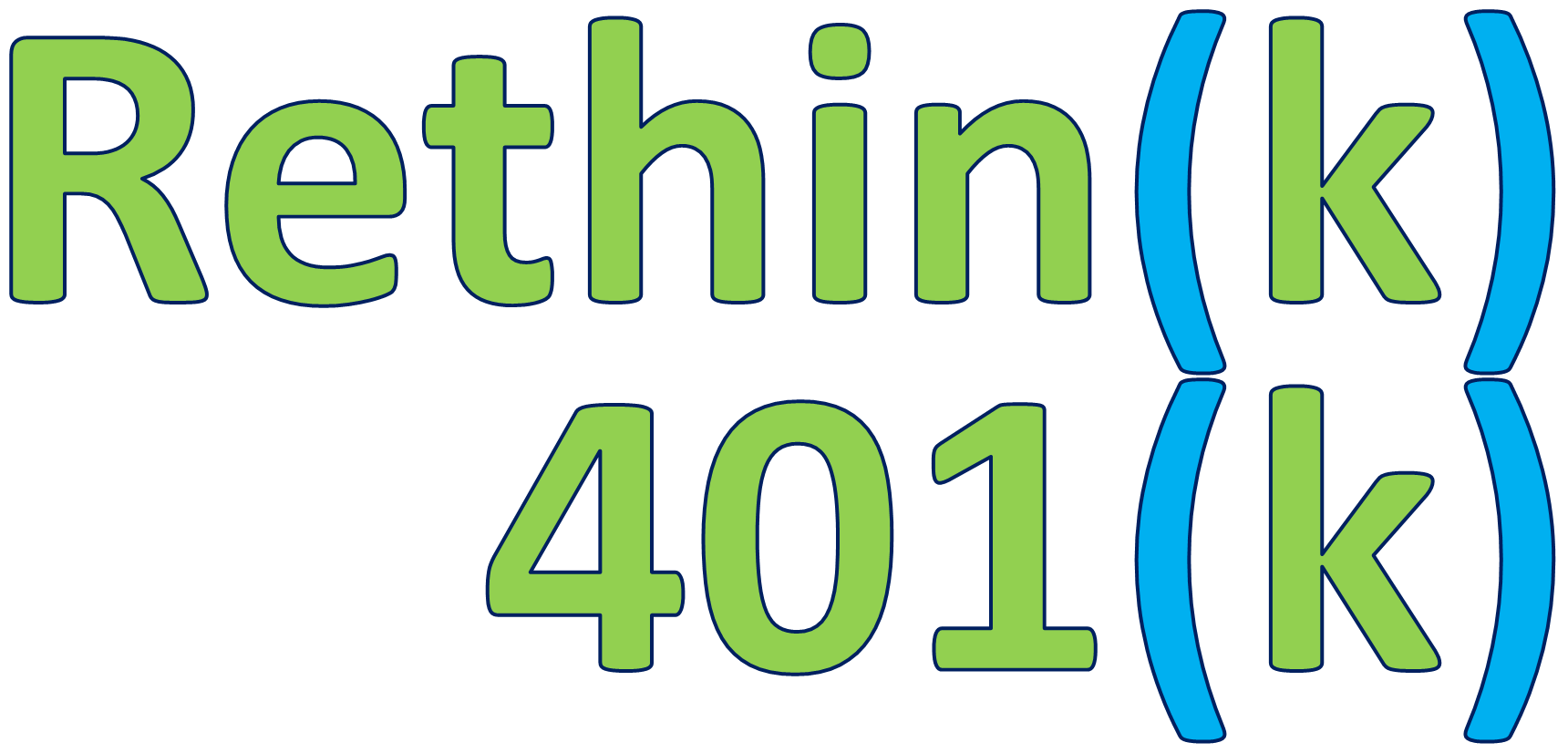Summary:
Here we will discuss in more specific detail the differences in deferral options available to participants.
Agenda:
- Introduction
- The Difference in Roth versus Traditional Deferrals
- Which is Better: Roth or Traditional 401(k)?
- If your Taxes will be Higher during Retirement
- If your Taxes will be Lower during Retirement
- If you will Max Out your contributions along the way
- If you need Lower Income today for specific tax breaks
- If your primary consideration is Legacy
- Recap
1. Introduction
There is quite a stir regarding 401(k) deferrals these days, and it hinges on how you as a participant should go about doing this. You see, in a 2001 law, you were given the chance as a participant to contribute to 401(k) in a new manner. This manner is known as Roth 401(k), as opposed to what has become known as Traditional 401(k). This choice became effective January 1, 2006, and in the Pension Protection Act of 2006, signed into law by President Bush on August 17th, 2006, the Roth 401(k) was made permanent, removing the December 31st, 2010 expiration date that previously was in force.[1] As such, if your plan doesn’t have Roth 401(k) as a feature, you may want to ask your HR department to consider adding one.
This begs the question, what is Roth 401(k), and if it can benefit me, which is better: Roth or Traditional? Due to the fact that this question hinges on the future of taxation, an ever-changing subject, answering this question is very difficult. In fact, it is quite likely unknowable, but we will do our best and help you decide which makes the most sense for you.
2. The Difference in Roth versus Traditional Deferrals
To understand Roth deferrals, we first should understand the elder of the two methods of deferring: Traditional. The way Traditional deferrals work is that by contributing in a Traditional fashion, you as a participant lower your taxable income in the current year, effectively receiving a tax break today, and get to grow your investments without paying taxes along the way. However, come the time you take money out of your 401(k) to turn it into your source of retirement paychecks, a “distribution” in 401(k) lingo, then you pay Ordinary Income tax on those distributions. In essence, you delay paying taxes today and everyday up until the day you decide to retire and take the money out of the plan for yourself, at which time you owe taxes.[2]
In contrast, the Roth deferral allows you to make after-tax contributions. While you do not receive a tax benefit for this today, contributions to a Roth 401(k) plan and the subsequent growth of its investments can be withdrawn tax-free! In addition, Roth 401(k) is different from Roth Individual Retirement Accounts (IRAs) in that there is no income restriction on your ability to utilize it! Thus, if you have been told in the past your income is too high for a Roth IRA, fret not, Roth 401(k) is here for you. The only caveat to Roth 401(k) is a two-part caveat on how to qualify for the tax-free aspect of Roth 401(k), which will be explained below.[2]
NOTE: No matter which means of deferral you select, Roth or Traditional, if you enjoy company Matching or Profit-Sharing, this is always contributed in a Traditional manner on your behalf from the company. Due to the fact that you have no say in the matter, it should not impact your decision, but you should be aware of this nugget of information.
To help highlight the differences and explain the aforementioned Roth 401(k) caveat to qualify for the tax-free aspect of Roth 401(k), here’s a snappy table to help visualize the differences:
| Roth 401(k) | Traditional 401(k) | |
| Contributions | No special treatment | Lower Taxable Income in Current Year |
| Investment Growth | Tax Free Growth | Tax Deferred Growth |
| Distributions | Tax Free | Taxed as Ordinary Income |
| Special Requirements | To get Tax Free Growth and Distributions you must have made at least one Roth 401(k) contribution 5 or more years prior and be at least 59½ | Distributions must begin in the calendar year in which you turn 70½ |
3. Which is Better: Roth or Traditional 401(k)?
Now that we know how Roth and Traditional 401(k) differ, we can attempt to answer this question. However, to answer this correctly for your specific situation, you as a participant would have to tell us what your tax situation would look like in the future at your retirement! Since we don’t expect you to be able to do this, we will instead showcase when it is generally superior to utilize one method of deferral over the other in this table below:
| Roth 401(k) | Traditional 401(k) | |
| A. If your Taxes will be Higher during Retirement |  |
|
| B. If your Taxes will be Lower during Retirement |  |
|
| C. If you will Max Out your contributions along the way |  |
|
| D. If you need Lower Income today for specific tax breaks |  |
|
| E. If your primary consideration is Legacy |  |
A. If your Taxes will be Higher during Retirement
The Roth 401(k) will allow you to “pre-pay” your taxes while they are low during your working years so that when taxes are high during the years of your retirement, you are withdrawing money tax free. If you feel that your peak earning potential is still a ways ahead of you, or that taxes as a whole will be systematically higher than they are today, then this is a likely scenario for you to consider.
B. If your Taxes will be Lower during Retirement
The traditional 401(k) will allow you to reduce your current income today when taxes are higher. While you will pay Ordinary Income taxes on the distributions you take during retirement, you will be doing so when taxes are lower. If you feel that you won’t be making significantly more income in the remainder of your working career, or that your spending will be reduced in retirement, perhaps because you will have paid off your home and cars or the like, then this is a likely scenario for you to consider.
C. If you will Max Out your contributions along the way
Due to the after tax nature of Roth 401(k), $10,000 contributed to Roth is not equivalent to $10,000 contributed to Traditional. Pretending you have a marginal tax of 28%, then $10,000 contributed to the Roth 401(k) is equivalent to $12,800 contributed to the Traditional 401(k) once taxes are factored in. However, the restrictions on 401(k) contributions do not factor taxes into the equation. Thus, if you can afford to max out your contributions each year, Roth 401(k) allows for a greater amount of tax advantaged dollars to go to work for you each and every year.
D. If you need Lower Income today for specific tax breaks
There are numerous aspects of today’s tax laws that are dependent on your income, and only Traditional can help lower your taxable income. If you benefit from tax breaks such as the child tax credit, Hope credit, or Lifetime Learning credit, then take those into consideration when you choose how best to utilize your 401(k). Also, if you are at risk of becoming subject to Alternative Minimum Tax (AMT), your choice in deferrals may play a factor. When it comes to your specific situation, you may find it necessary to consult a tax professional for tax planning purposes if you are utilizing tax breaks like those mentioned above.
E. If your primary consideration is Legacy
If you are one of the privileged few who do not need the 401(k) for your retirement paychecks, but can instead focus on passing this down to your worthy heirs and charities, then an important factor will be requirements in distribution. A Traditional 401(k) requires that you start withdrawing money from your 401(k) in the calendar year in which you turn age 70½. The reason for this is so that the government may start collecting taxes on the income you have deferred. This may interfere with your legacy planning as it will add complication and lessen the size of the asset through taxation. In contrast though, a Roth 401(k) has no distribution requirements. This will allow your contributions to continue to grow long past the calendar year in which you turn 70½. When it comes to Legacy Planning, Roth 401(k) can be a powerful tool.
4. Recap
In summary, Roth 401(k) provides no special tax treatment today, but has the power of tax-free investment growth and distributions later, whereas Traditional 401(k) lowers current income today and provides tax-deferred growth, but is taxed as Ordinary Income later. As for which is better, Roth or Traditional 401(k), the answer depends on the future of taxation, which means that the best we can do now is take an educated guess. That said, consulting the table in Section 3, “Which is Better: Roth or Traditional 401(k)?”, will help shed light on which may be the best given what you know about the future today.[a]
Disclosures:
[a] Please note withdrawals from the account may be tax free, as long as they are considered qualified. Limitations and restrictions may apply. Withdrawals prior to age 59 ½ may result in a 10% IRS penalty tax.
Sources:
[1] The Pension Protection Act of 2006, Technical Explanation of H.R. 4 prepared by the Joint Committee on Taxation, Title VIII, section B, subsection 1, http://www.dol.gov/ebsa/pdf/x-38-06.pdf.
[2] IRS Roth Comparison Chart, http://www.irs.gov/Retirement-Plans/Roth-Comparison-Chart.



Tracking #1-212833
